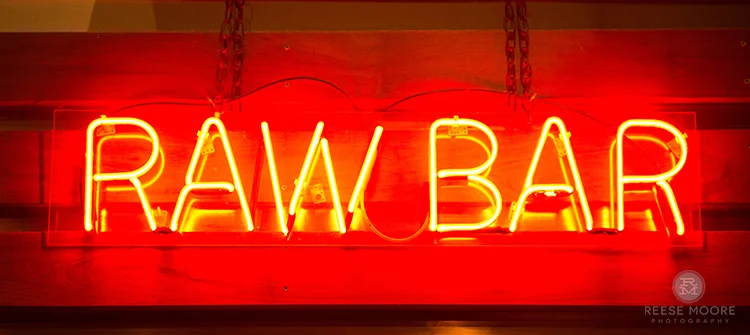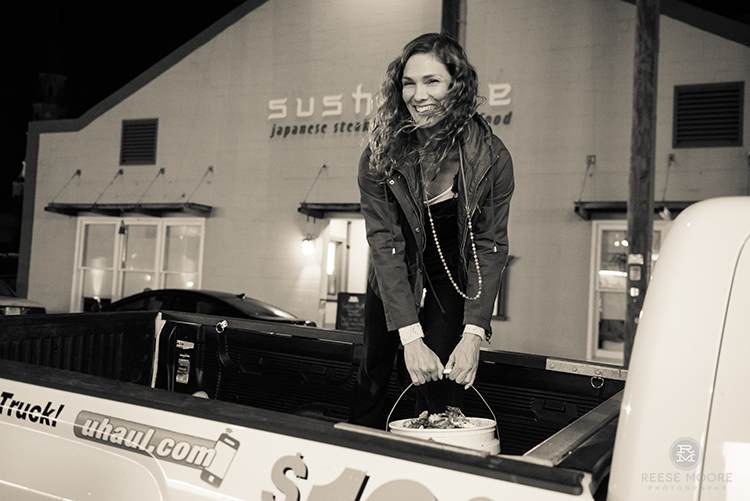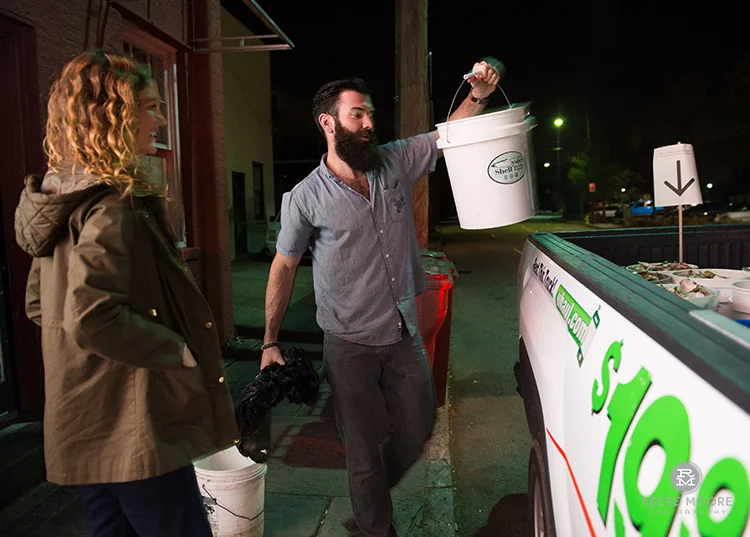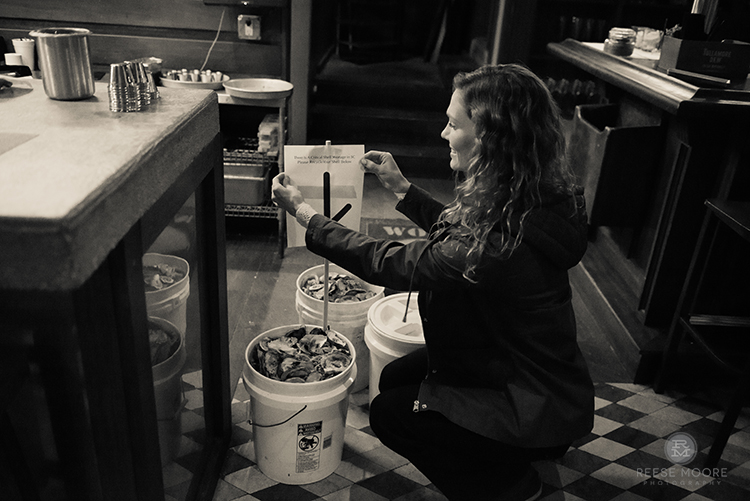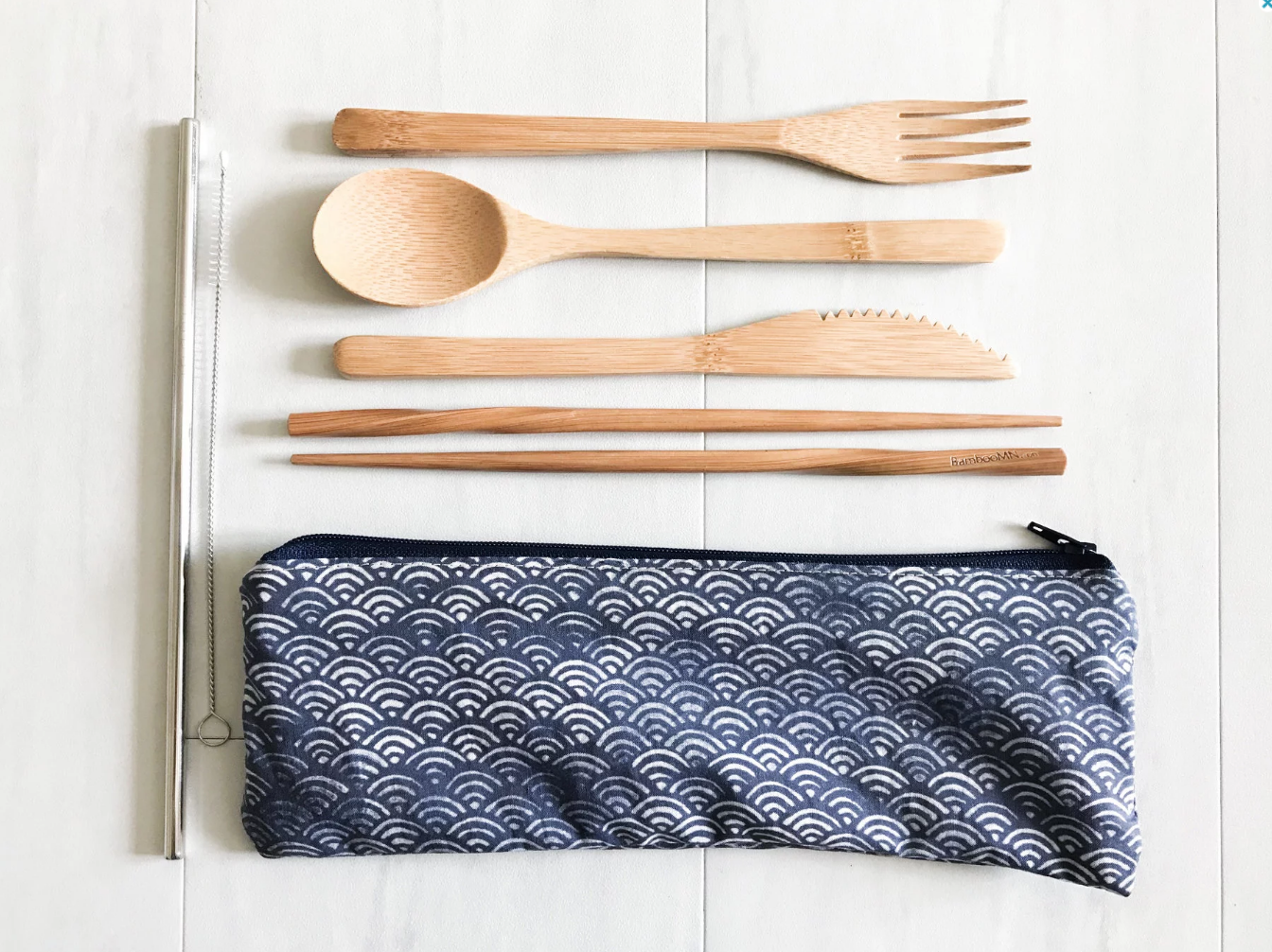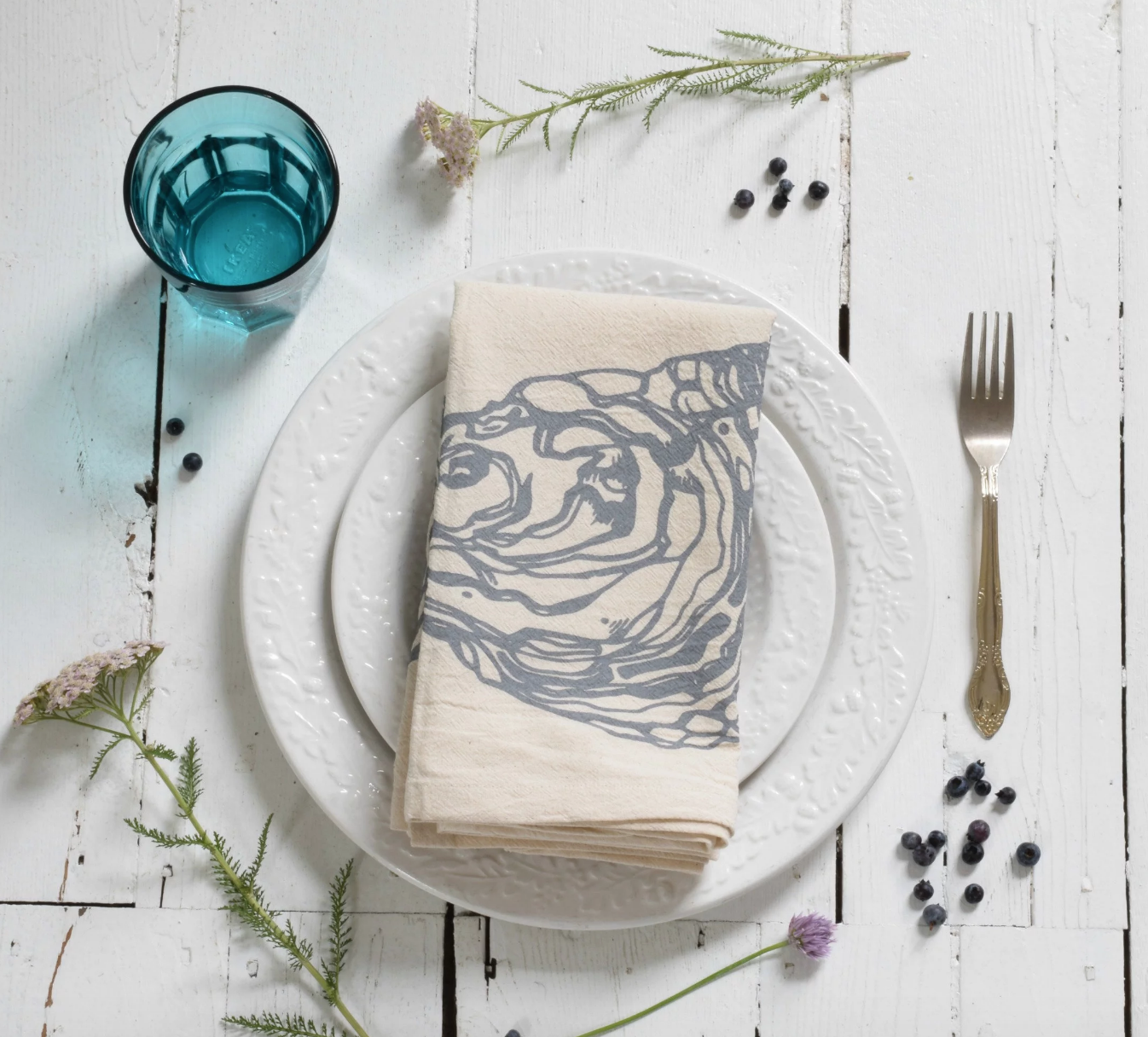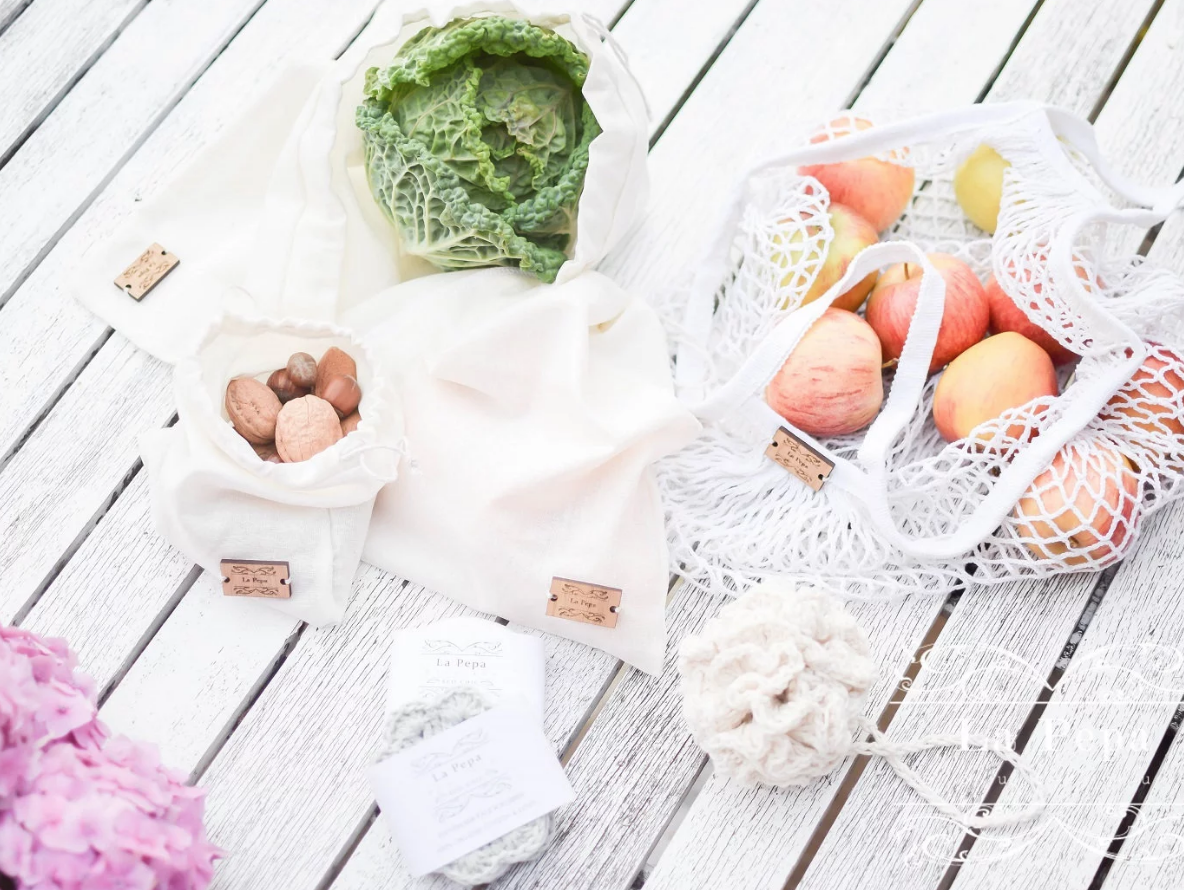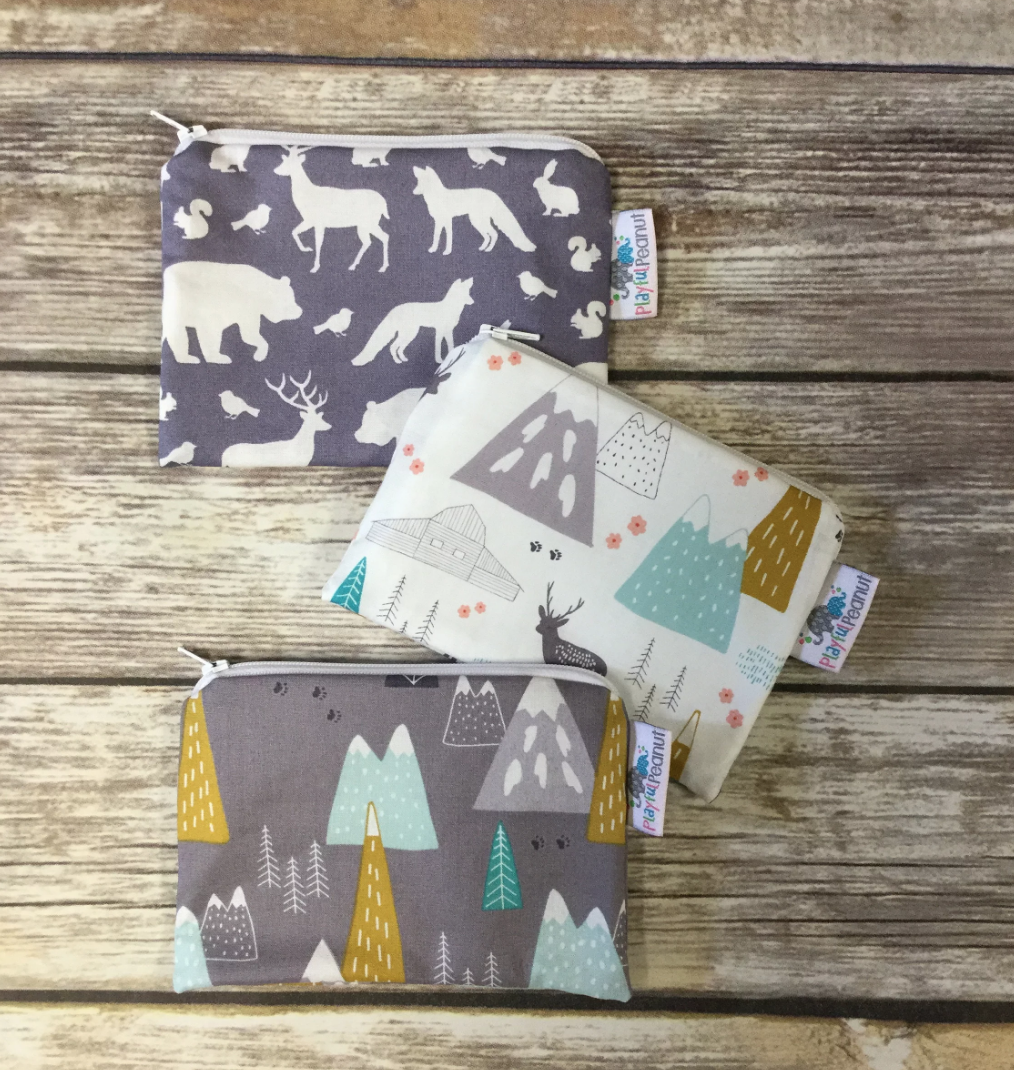Grit & Grace Designer Rachel Gordon: Giving a Damn About Oysters
/It takes a special sort of spunky brunette to spend their Saturday nights hauling around nasty, stinking oyster shells in the name of saving the planet.
Spoiler alert: I am definitely not that brunette. I will be at home with a glass of Cava, blogging about said other spunky brunettes.
Y'all met Rachel Gordon a minute ago, when I fell in love with her sustainably created oyster shell dishes (or in my case, air plant homes) from Grit & Grace.
Today, we're delving into the grit behind Grit & Grace.
It's a lot more buckets, pick up trucks, and smelly shells than you probably expected.
What makes Grit & Grace a sustainable business? Was that always the plan?
Rachel Gordon: When I was thinking about moving forward with a business idea that incorporated oyster shells, the only thing I really knew about oysters was that they were beautiful and delicious.
As I began the journey with Grit and Grace, I did a lot of research and quickly learned the positive environmental impact that oysters have on the Lowcountry and how important it is to return the shells back to nature after consumption through recycling. Basically, if we consume thousands/millions of oysters and send the shells to a landfill, we will not have oysters to enjoy in the future. That model is not sustainable and unfortunately, this is happening on the regular.
The SCDNR provides an oyster recycling program in Charleston where the staff works tirelessly to collect shells from restaurants. The program also has numerous oyster shell drop off locations, throughout the state of South Carolina, for the public that can be found here. It is an amazing service that our state provides to help protect the Lowcountry waterways, however, not all of our beloved oyster-serving Charleston restaurants are recycling their oyster shells.
I've been researching the program and asking these restaurants “WHY NOT?!!!” The most common challenges that these restaurants face is that they do not have adequate space to store the oyster shells, the shells stink, and SCDNR only comes twice a week to collect them.
During the summer months, the ripe shells have been compared to the smell of a dead body.
It is hard work and inconvenient to sort and manage thousands of pounds of stank shells. I understand that, so the restaurants that are committed to recycling deserve a huge applause and our business for the effort they are putting forward to protecting this amazing resource.
Ok, back to the question how is Grit and Grace a sustainable business?
Because there are so many restaurants that are not participating in the oyster recycling program, I volunteer my time to make it so easy for them to recycle that they can’t say no. I drop off buckets at the beginning of their meal service and pick them up at the end of the night. They do not have to store the shell or manage any unwanted smells. Basically I am rescuing these shells from ending up in a landfill and recycle them in collaboration with SCDNR. Grit and Grace recycles 10 shells (that would otherwise be going to a landfill) for every 1 shell that is sold.
How has the restaurant industry responded to the Grit & Grace recycling initiative? Do you feel like people "get it”?
Rachel Gordon: It has been an interesting journey with a multitude of reactions.
What I learned is that people, including industry professionals, are generally unaware that there is an oyster shell shortage in South Carolina.
Most people are even more shocked to find out that South Carolina purchases more than $50k worth of oyster shells annually from out of state for reef restoration and to replant our oyster beds.
Once I have the opportunity to share these truths, most restaurants and people want to help recycle and have been very cooperative. I try to make it as easy as possible for restaurants to participate.
What does it take to run a sustainable business? What sacrifices does it require?
Rachel Gordon: Mainly it takes giving a damn
...and being committed to changing the system. Giving a damn (about anything) requires a lot of time and energy! The sacrifice includes dedicating my weekends and evenings to helping busy downtown restaurants getting their shells to the SCDNR recycling center.
PS- I am looking for volunteers to join the movement!!
Why is keeping Grit & Grace sustainable important to you?
Rachel Gordon: Keeping G&G sustainable is important to me because I love oysters, Charleston waterways...
And I give a damn!
I want our waterways to be nourished and protected by the benefits that oysters provide.
The Grit and Grace dishes are beautiful, but they also serve as an amazing tool for awareness about this problem. I am grateful that Grit and Grace has come to fruition as a thriving business and I look forward to what this next year has in store.
How can we help?
Rachel Gordon: Recycle your oyster shells! There are oyster shell recycling drop off sites all over the low country that you can find here.
Spend money and eat at restaurants that you know are recycling their oyster shells. Also, let the restaurants know that is important to you that you are recycling and encourage them to keep up the good work.
If you are eating out at a restaurant and you are uncertain if they are recycling, please ask your server, manager, or chef if they are recycling their oyster shells? If they are, give them a high five and encourage them to keep it up. Its hard work to sort, lug, and store bushels of stinky oyster shells.
If they are not recycling their oyster shells encourage them to start. If restaurants understand that it is important to their patrons hopefully they will make the extra effort to begin recycling with SCDNR.
A huge thank you to Rachel for all she's doing to promote awareness for oyster shell recycling!
*This gallery contains affiliate links. This means that if you click through and give the product a whirl, I get a tiny fee for spreading the news at no extra cost to you. This helps me offset the enormous amount of time that goes into Compost & Cava.



